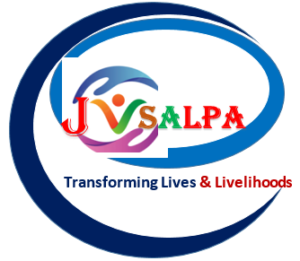Juba and Shebelle Agriculture and Livestock Professional Association (JUSALPA)
Service Coordination and Delivery
Effective coordination of services is essential to meet the diverse needs of displaced communities. JUSALPA works closely with local authorities, humanitarian agencies, and service providers to ensure that IDPs have access to essential services such as water, sanitation, healthcare, education, and protection. By coordinating these efforts, we help prevent service gaps and ensure that resources are used efficiently to benefit those in need.
Camp Infrastructure and Maintenance
Maintaining and improving camp infrastructure is a key component of our CCCM programs. JUSALPA is responsible for the construction and upkeep of shelters, roads, drainage systems, and communal spaces within IDP camps. We also work to ensure that facilities are clean, safe, and accessible to all residents, particularly women, children, and people with disabilities. Regular assessments and maintenance are conducted to address issues that could compromise the safety and well-being of camp residents.
Community Participation and Governance
Empowering displaced communities to actively participate in the management of their camps is central to our approach. JUSALPA facilitates the formation of camp committees and other representative bodies that allow residents to voice their concerns, contribute to decision-making, and take ownership of camp activities. Training and capacity-building support are provided to these committees, equipping them with the skills and knowledge needed to manage their camp environments effectively.
Protection and Safety
The safety and protection of IDPs are top priorities in our CCCM programs. JUSALPA implements measures to safeguard the rights and well-being of all camp residents, with a particular focus on vulnerable groups such as women, children, and those at risk of exploitation or abuse. We work closely with protection agencies to ensure that residents have access to legal assistance, psychosocial support, and safe spaces. Additionally, we advocate for the rights of IDPs at the local and national levels, ensuring that their voices are heard and their needs are met.
Health and Hygiene Promotion
Health and hygiene are critical aspects of camp management. JUSALPA’s CCCM programs include health promotion activities that educate camp residents about hygiene practices, disease prevention, and the importance of accessing healthcare services. We also work to ensure that sanitation facilities are properly maintained and that clean water is available to all residents, reducing the risk of disease outbreaks and improving overall health outcomes.
Livelihood Support and Skills Development
Supporting the livelihoods of IDPs is essential for their long-term recovery and integration. JUSALPA offers livelihood support and skills development programs within camps, providing residents with opportunities to learn new trades, start small businesses, and generate income. These programs are designed to enhance the self-reliance of IDPs and prepare them for life beyond the camp.
Planning for Durable Solutions
JUSALPA is committed to supporting IDPs in their transition towards durable solutions, whether through safe return to their places of origin, local integration, or resettlement in new locations. Our CCCM programs include efforts to prepare residents for these transitions by providing them with the information, resources, and support they need to make informed decisions about their futures. We also collaborate with other agencies to ensure that IDPs have access to livelihood opportunities, education, and other services that will support their long-term reintegration.
Monitoring and Evaluation of CCCM Programs
To ensure the effectiveness of our CCCM interventions, JUSALPA conducts regular monitoring and evaluation. We assess the living conditions within camps, track the impact of our programs, and use data-driven insights to improve service delivery and camp management. This continuous learning process helps us to adapt our strategies and ensure that our CCCM programs are responsive to the needs of displaced communities.
